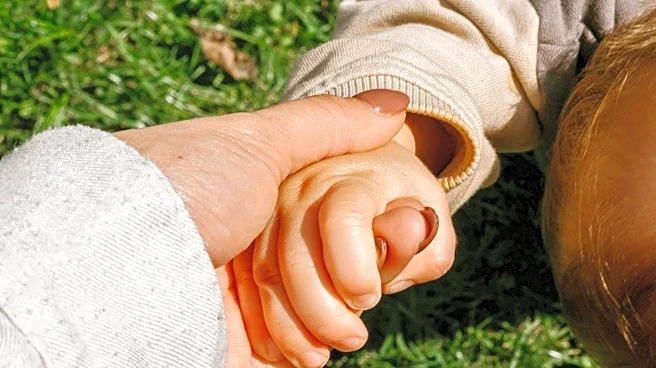What is the story about?
What's Happening?
Psychologist Carolina Estevez from Soba New Jersey highlights the challenges parents face when trying to engage their children in conversation after school. Estevez notes that children often feel mentally and emotionally drained after a day of school, making them less responsive to the typical question, 'How was school?' Experts suggest that parents should focus on creating ongoing opportunities for connection through open-ended questions and genuine listening. This approach can help children feel more comfortable sharing their experiences and emotions, rather than feeling pressured to provide immediate responses.
Why It's Important?
Improving communication between parents and children is crucial for fostering emotional intelligence and strengthening family bonds. By adopting strategies that encourage open dialogue, parents can better support their children's emotional well-being and development. This approach can also help children process their daily experiences more effectively, leading to improved mental health outcomes. As children grow older, maintaining open lines of communication becomes increasingly important for navigating the complexities of adolescence.
What's Next?
Parents are encouraged to implement these strategies in their daily interactions with their children. By asking specific questions that invite storytelling and emotional sharing, parents can create a more supportive environment. Additionally, respecting children's need for privacy while showing genuine interest can help maintain a balance between connection and independence. Over time, these practices can lead to more meaningful conversations and a stronger parent-child relationship.
Beyond the Headlines
The shift from closed-ended to open-ended questions reflects broader changes in parenting styles that emphasize emotional support and active listening. This approach aligns with contemporary psychological insights into child development, suggesting that fostering emotional openness can lead to healthier family dynamics. As society continues to prioritize mental health, these strategies may become more widely adopted, influencing cultural norms around parenting and communication.















